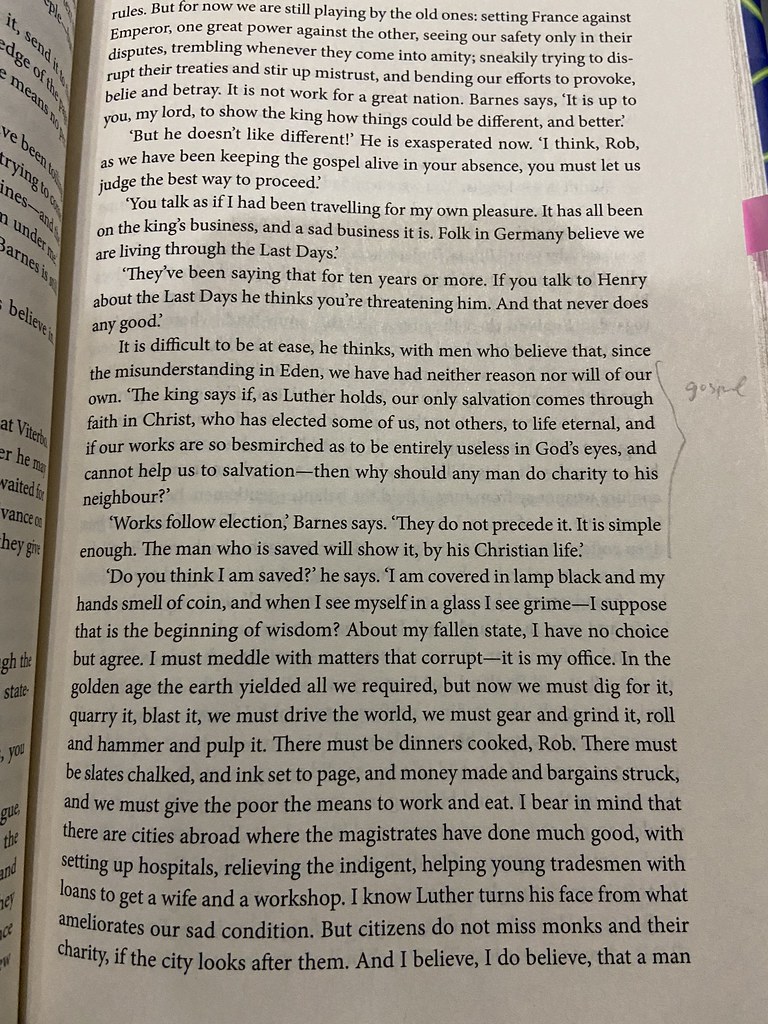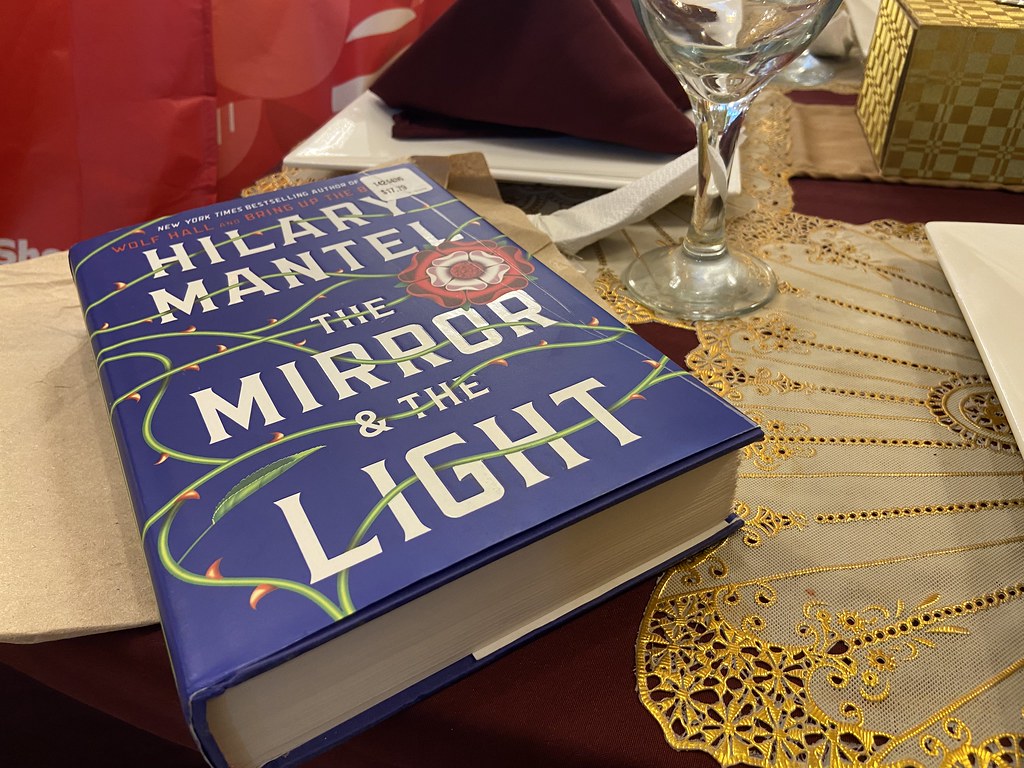Do you think I am saved?

I spotted Hilary Mantel's The Mirror and the Light, the third novel in
her historical fiction trilogy about Thomas Cromwell, from a pile of books on
sale at National Bookstore, SM Gensan. I didn't mind that I'd only read
Wolf Hall (the first)
and hadn't even gotten started on Bring Up the Bodies (the second).
There's no method, other than my mood, that governs my choice of the next
reading material—a novel, a short story, a poetry collection, a book of
essays, a theological discourse, a biochemistry textbook.
I started reading the novel right away. On page 223, Thomas Cromwell—now Lord
Thomas Cromwell, Master Secretary to the King Henry VIII, Lord Privy
Seal—talks to Robert Barnes, a Lutheran cleric. Hilary Mantel, one of my
greatest discoveries this year, reimagines the internal struggle of
Cromwell about his Protestant faith in the passage below.
It is difficult to be at ease, [Cromwell] thinks, with men who believe that, since the misunderstanding in Eden, we have had neither reason nor will of our own. "The king says if, as Luther holds, our only salvation comes through faith in Christ, who has elected some of us, not others, to life eternal, and if our works are so besmirched as to be entirely useless in God's eyes, and cannot help us to salvation--then why should any man do charity to his neighbour?""Works follow election," Barnes says. "They do not precede it. It is simple enough. The man who is saved will show it, by his Christian life.""Do you think I am saved?" he says. "I am covered in lamp black and my hands smell of coin, and when I see myself in a glass I see grime--I suppose that is the beginning of wisdom? About my fallen state, I have no choice but agree. I must meddle with matters that corrupt--it is my office. In the golden age the earth yielded all we required, but now we must dig for it, quarry it, blast it, we must drive the world, we must gear and grind it, roll and hammer and pulp it. There must be dinners cooked, Rob. There must be slates chalked, and ink set to page, and money made and bargains struck, and we must give the poor the means to work and eat. I bear in mind that there are cities abroad where the magistrates have done much good, with setting up hospitals, relieving the indigent, helping young tradesmen with loans to get a wife and a workshop. I know Luther turns his face from what ameliorates our sad condition. But citizens do not miss monks and their charity, if the city looks after them."
Mantel, in so few words, writes about justification, predestination, God's sovereignty, human free will, and good works. I agree with the line she wrote for Barnes here: works follow election, they do not precede it. Mantel also writes a beautiful line for Cromwell who questions his own salvation: "Do you think I am saved?" It is heartbreaking, but it is an exercise that Christians are called to do (2 Peter 1:10).
Why didn't I discover Hilary Mantel earlier?

Comments
Post a Comment